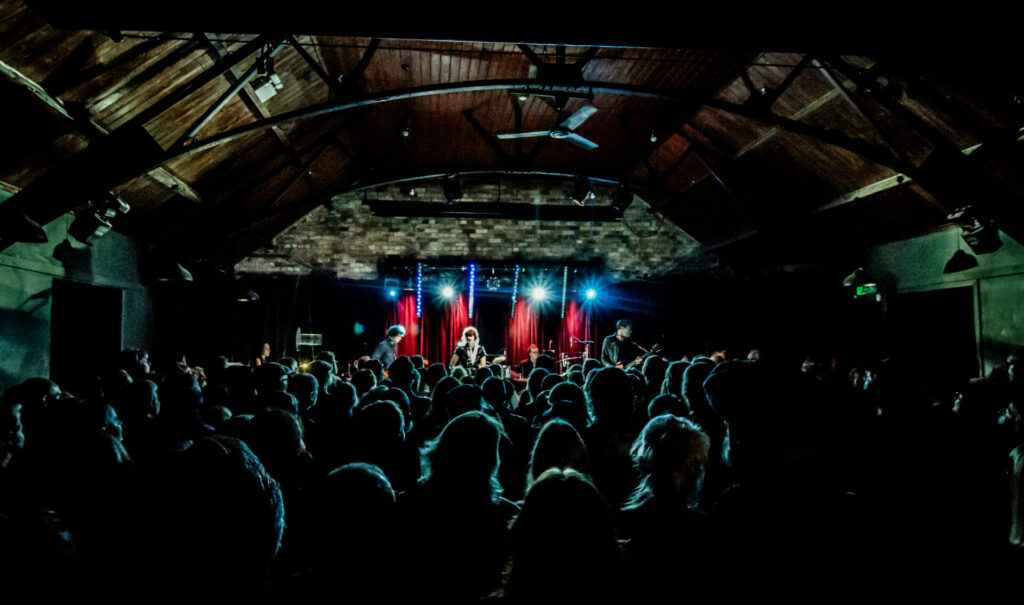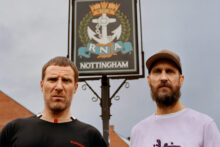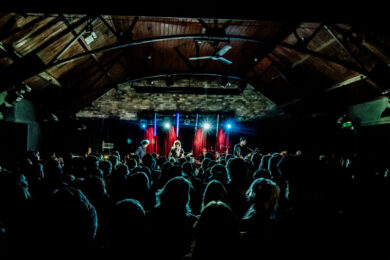The sprung wooden floor of The Trades Club in Hebden Bridge is no stranger to dancing. It’s hard to imagine today, but its modest upstairs hall was built in 1924 for graceful ballroom affairs – all waltzes and foxtrots to classical music. A century later, it has become a revered grassroots music venue on the UK circuit; a place where world-touring acts regularly choose to play intimate, sold-out shows to just 200 fans. King Gizzard, Laura Marling, English Teacher, IDLES (and the rest) have all been drawn to the raucous and appreciative crowds of The Trades – a keystone venue in the Calder Valley of West Yorkshire.
Framed by steep valley sides, the historic market town has been a haven for artists, writers, and free-thinkers since the 1970s. The Trades Club doesn’t just reflect that spirit; it helped forge it. Founded as a working men’s club (WMC) in 1924, it embodied a tradition of member-owned social spaces that were once at the heart of Britain’s industrial towns. While many such clubs have faded into memory, Hebden Bridge’s has endured and reinvented itself.
WMCs first emerged in mid‑19th‑century Britain, inspired by gentlemen’s clubs but created for working-class people. Backed by the temperance movement and the Club and Institute Union (CIU), they offered democratic spaces where men could gather and enjoy recreation without the then-prevalent stigma of pubs. Members collectively owned and managed their clubs, reinvesting any profits for the benefit of all. Rules over the sale of alcohol eventually relaxed, and at their height in the 1970s, more than 4,000 CIU‑affiliated clubs served millions, acting as cultural and social hubs in industrial towns. While these member‑led spaces have since dwindled in number, some have endured – and at a time of broad crisis for grassroots music venues, some of these old‑school WMCs are finding new life and thriving.
Grassroots venues across the UK are being shuttered at a rate of two per month, often being sold off or unable to cover skyrocketing rents. Just last year, the Music Venue Trust (MVT) dealt with 40 cases of landlord and lease issues, the second most common crisis for its Emergency Response Service. But for Trades, collective ownership offers something rare: resilience. “Our members are the heart of The Trades Club,” says booker and promotions manager Mal Campbell. “On a day‑to‑day level, they form the committee, run the doors, and advise on our website – it makes us more sustainable as a venue.” Its 1,600 paying members hold a stake in its future, helping safeguard a century-old stage for years to come.
Like The Trades Club, new generations of members are seeing WMCs across the country become celebrated cultural hubs. Crookes Club in Sheffield, founded in 1919, was in terminal decline just a decade ago, its membership down to 200. Today, under manager Maurice Champeau, Crookes is thriving as both a community institution and music venue, with acts like Fat Dog, Pete Doherty, and BC Camplight packing out its 400-capacity hall. While no longer a traditional WMC, Crookes still runs a membership model, giving people a stake in its future, and its long-term viability has been secured by a 30-year lease agreement with a supportive landlord. Membership now stands at 900.
Walthamstow Trades Hall in north-east London has also seen a dramatic revival. The century-old club saw membership increase 105% in 2023 and another 60% in 2024 by embracing inclusivity and considering the makeup of its local community. Pride flags now hang from the rafters, and the once-declining venue now hosts everything from jazz or dub nights and hardcore bands to comedy, literary events, choir rehearsals, and pensioners’ tea dances.
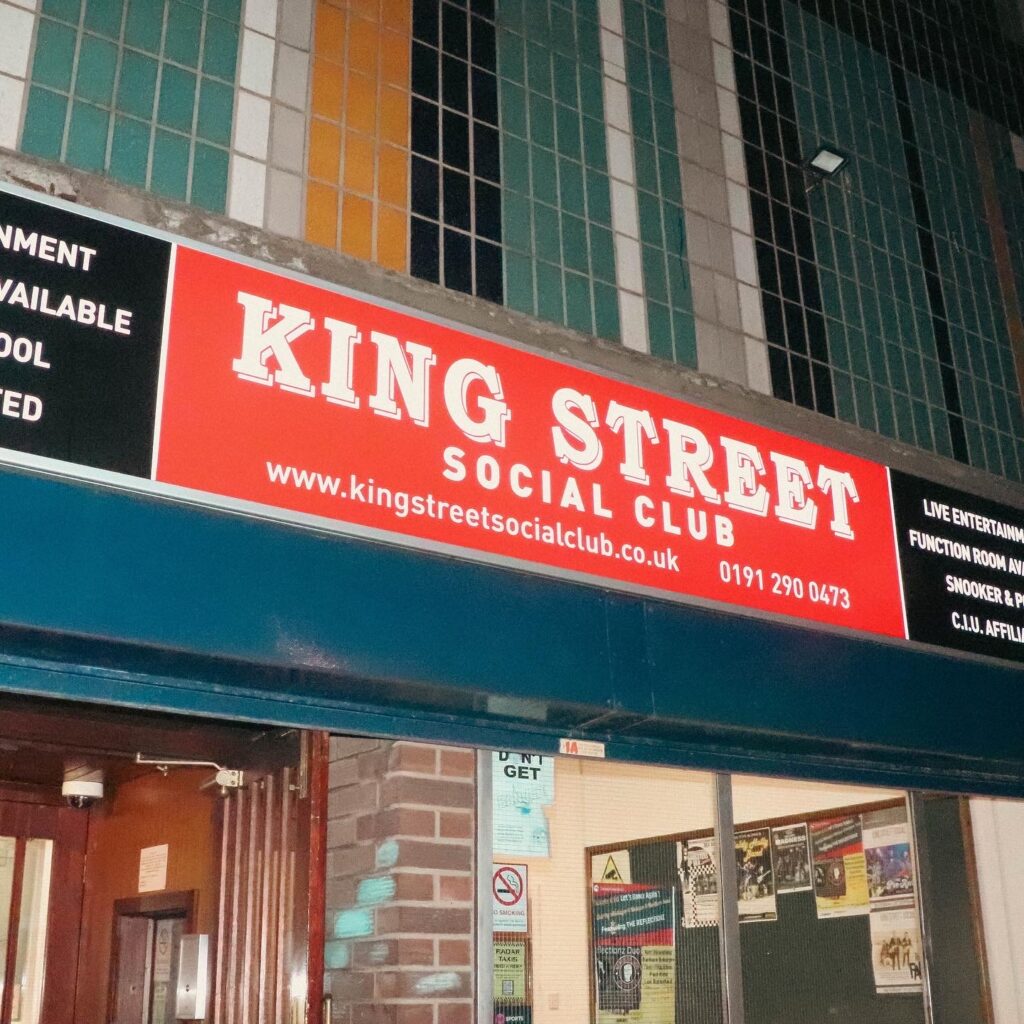
King Street Social Club in North Shields has also been running on such a model for decades. “It’s completely member-owned as an organisation, and the organisation owns the site too,” says Geoff Kirkwood (aka Man Power), the founder of King Street’s Are You Affiliated, and who has taken on a ten-year license to operate events within the venue. “The members are essentially shareholders, but the organisation is structured not to make a profit beyond the upkeep of the site. It’s the only place I’ve ever been to where I’ve seen a sign warning people that the price of beer is about to be reduced in the next month.”
At a time when 90% of grassroots music venues are tenants, many are left vulnerable to rent hikes, lease non-renewals, and redevelopment – particularly if the landlord has no stake in the cultural value being created onstage. In this way, mutual-ownership models can offer a level of built-in ballast. “The social club model works really well when you have a full and engaged membership which generates plenty of money and sees a ready supply of experienced people willing to step into leadership roles for their community,” says Kirkwood. Still, mutual ownership is only part of the equation. “A lot of social clubs have been operating as mutually-owned sites for years, and they’ve still managed to close down. I think the model is definitely the starting point, but I also think we need to be coming up with more creative solutions than those already in play.”
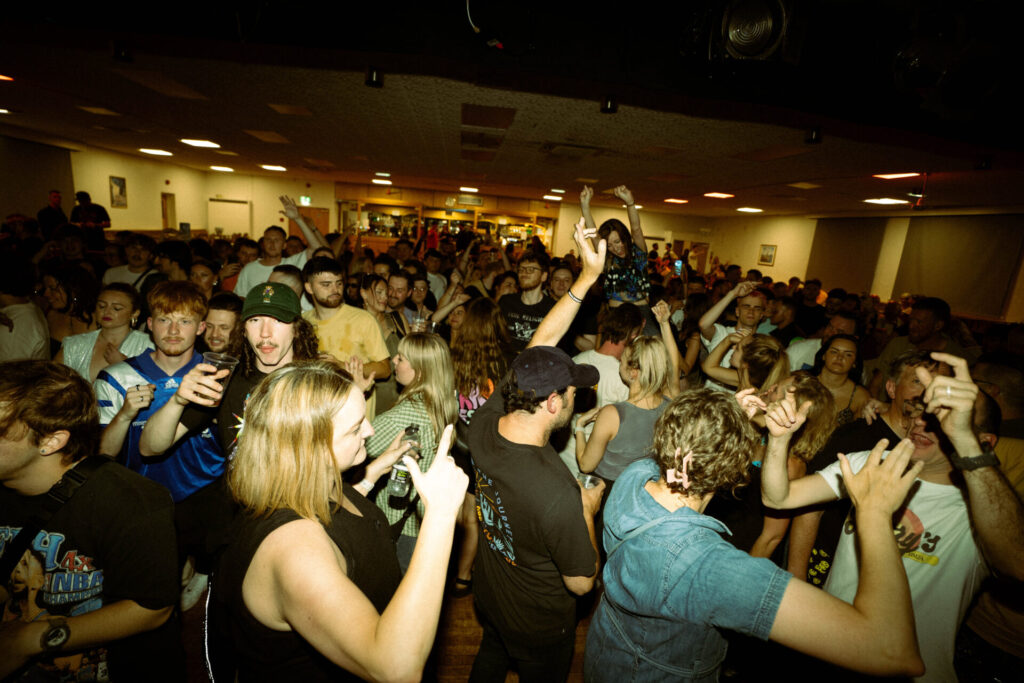
One national organisation pioneering such a solution is Music Venue Properties (MVP). “We’re buying venues and placing them into permanent, protected community ownership and renting them back to community tenants via a cultural lease,” says Matthew Otridge, MVP CEO. “It ensures venues operate as music spaces with long-term security, affordable rents, and ongoing maintenance contributions.”
As a Community Benefit Society created by the Music Venue Trust, MVP is democratic by design. “It means we are governed by our members – each with an equal vote, regardless of how much they invest,” Otridge explains. This ‘Own Our Venues’ scheme has been touted as a ‘National Trust for grassroots venues’, where fans and ethical investors can buy a stake in the organisation for as little as £100. This direct investment is then used as powerful leverage. “In the first campaign, the £1m raised in community shares unlocked a further £1.88m of other funding.”
This was enough to purchase the freeholds of five venues across the UK: The Snug in Atherton, Le Pub in Newport, Swansea’s The Bunkhouse, The Booking Hall in Dover, and The Ferret in Preston. For these spaces, the threat of commercial landlords or redevelopment has been permanently removed. They now answer not to a speculator, but to a community of people invested in their cultural survival.
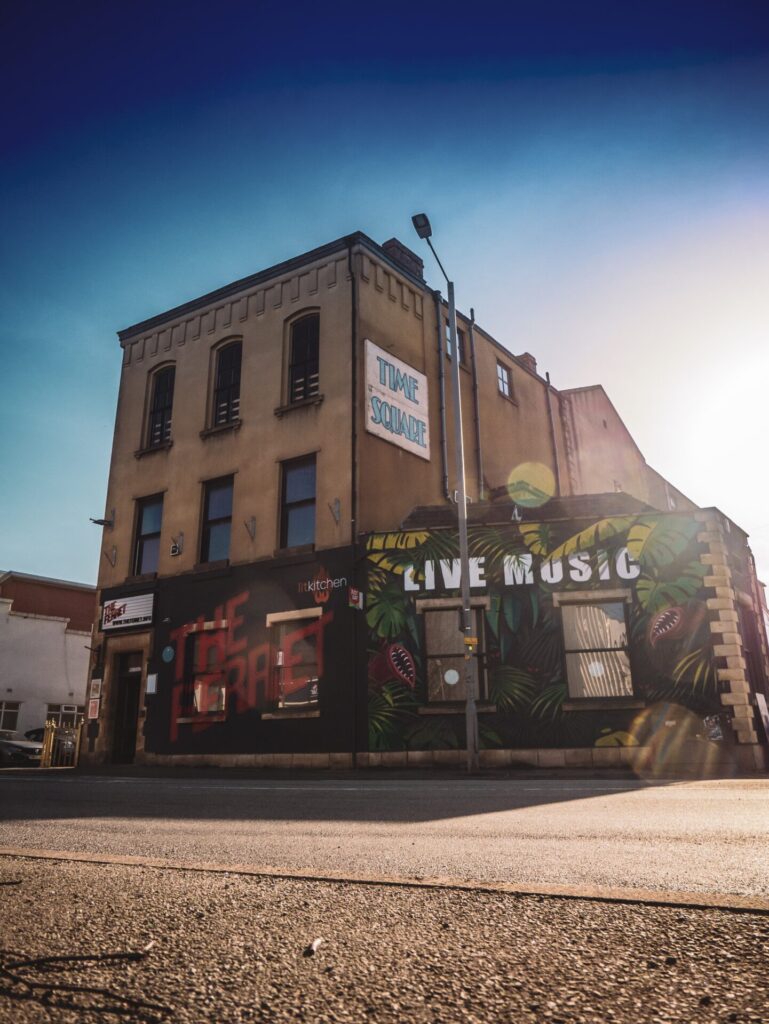
“It’s a stark difference to an uninterested and detached commercial landlord, whose only aim is to extract as much revenue from the building as possible,” says Matt Fawbert, director and programme manager at The Ferret. “Venues like ours are here to serve a like-minded community of live music fans, alongside local musicians and creatives. Having that same community own a stake in the venue is just a no-brainer – it’s their venue as much as ours.”
Now, MVP is scaling up. A second community share offer, which recently surpassed its £1 million investment target, aims to save seven more iconic venues, preserving a collective 150 years of live music history. One such space is 57-year-old The Joiners in Southampton – a proving ground for the likes of Radiohead, Oasis, Blur, and The Arctic Monkeys.
For venue operator and promoter Ricky Bates, MVP’s intervention has come at a critical moment. The venue’s lease had neared its end, and the threat of redevelopment loomed. “Everything I’ve worked so hard for in the last 12 years would be lost, as well as 57 years of history straight in the bin because someone wants to sell it for commercial property,” he said in an interview with In-Common. “Where do a bunch of working-class people find half a million quid from? That’s where MVP came in.”
The shift to a community-owned model isn’t just about saving a building; it’s about making the culture within it sustainable. “Once the transition goes through, they are about sustaining venues like ourselves, which frees up more money for us to employ more people,” Bates explains. “I’ve volunteered 20 hours a week for ten years, unpaid […] It’s a passion for the greater good, but this model helps make that passion viable.”
The answer to the precarity haunting Britain’s stages, then, is not a new idea, but a radical and sustainable update of an old one. By tackling the root cause of the crisis – fragile tenancies – mutual ownership models are evolving into a national movement courtesy of MVP. “In ten years, we aim to own dozens more venues, supporting hundreds of communities,” says Otridge. But the ultimate measure of success is not a rescue mission tallied in buildings; it’s a long-term vision for cultural resilience. “Success isn’t just about the number of grassroots music venues we save, it’s also proving that community ownership ensures they survive,” he says. “I’d personally sooner measure success by the latter.”

